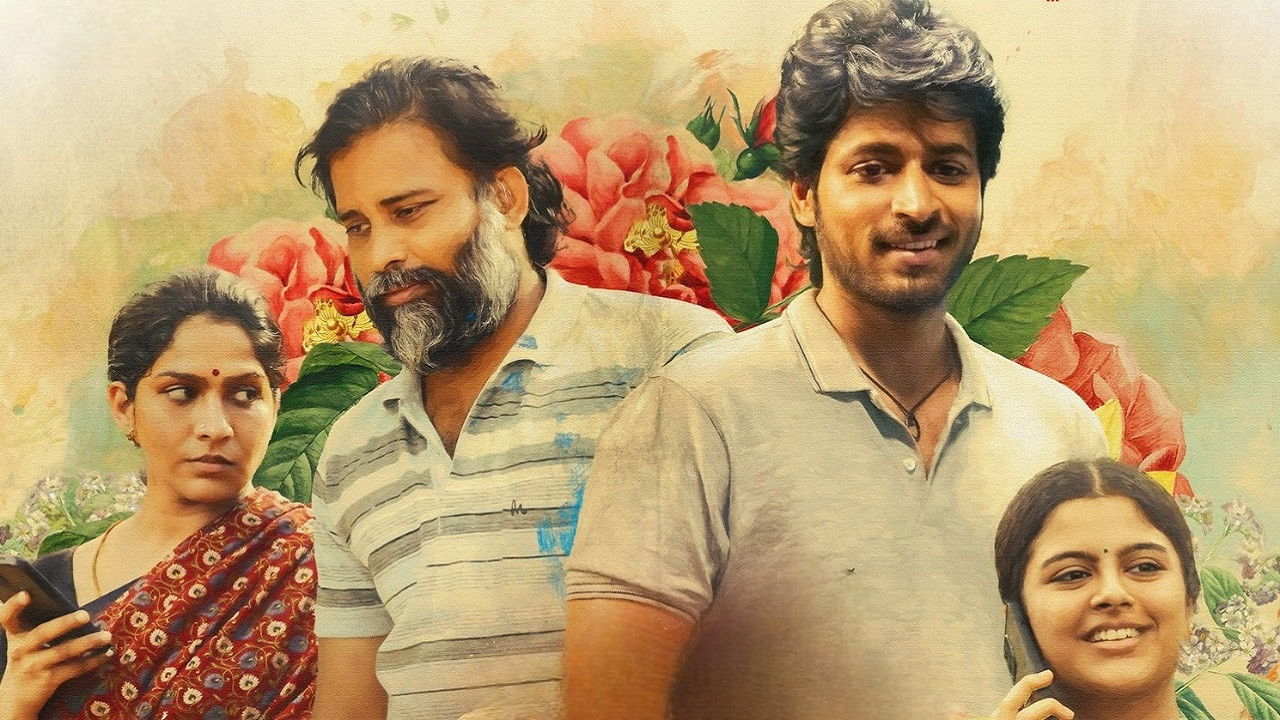- Published on
Lubber Pandhu Movie Review

With only a few months left in the year, Tamil cinema has had a disappointing run. Many films were released, and while they weren't particularly good, the discussions and controversies surrounding them were intriguing. However, an unexpected entry has emerged: "Lubber Pandhu," starring Dinesh and Harish Kalyan, directed by Tamizharasan Pachamuthu. If the movie "GOAT" hadn't flopped, it might have overshadowed both this film and "Meiyazhagan," but its failure has allowed these movies to gain more attention.
In recent Malayalam and Tamil cinema, a compelling narrative trend has emerged, focusing on intense conflicts driven by ego between two main characters. This storytelling approach, while not entirely new, has become more prevalent in recent years. It creates a uniquely complex emotional experience for the audience, who often find themselves unable to decisively take sides. Each confrontation between the characters is simultaneously entertaining and uncomfortable to watch, eliciting a mix of enjoyment and unease from viewers. This theme has appeared in various films over the years, from earlier examples like "Neruku Ner" to more recent productions. Interestingly, actor Harish Kalyan has now been part of this genre twice, first with "Parking" and now with "Lubber Pandhu." Even older films like "Kadhal Sadugudu," featuring Vikram and a memorable scene where Prakash Raj burns an Ambassador car, touched on similar themes of intense personal conflict. While these films follow a recognizable pattern, each manages to present the conflict in its own unique and compelling way, demonstrating the versatility of this narrative structure. This trend reflects a growing appreciation for more nuanced storytelling in Tamil and Malayalam cinema, moving beyond simple hero-villain dynamics to explore complex character relationships and moral ambiguities.
In "Driving License," the conflict arises between a celebrity and a common man in a position of authority, creating an interesting power dynamic. "Ayyappanum Koshiyum" adds a layer of surprise by presenting a character who initially appears to be an ordinary person but is revealed to have hidden depths or capabilities. "Parking" starts with a relatable conflict between ordinary individuals but loses its grounding in reality when MS Bhaskar's character involves his daughter. This escalation shifts the tone of the story and strays from believable common-man behavior, potentially alienating viewers who were invested in the initial, more realistic conflict. In contrast, "Lubber Pandhu" maintains a more grounded approach throughout. It focuses on two ordinary people who are skilled in their respective passions. Their conflict stems from slight ego clashes, which the film allows to unfold naturally without artificially inflating into a major catastrophe. This approach keeps the story relatable and true to the experiences of everyday people, exploring how minor ego-driven disputes can affect relationships without resorting to unrealistic or overly dramatic escalations.
The interplay of similarities and contrasts between characters creates an appealing dynamic. Gethu Dinesh and Anbu exhibit parallel traits: both are artists, with Dinesh focusing on wall paintings and Anbu on computer-generated prints. Their shared passion for cricket supersedes team allegiances, and each has a supportive companion. Both experienced romantic loss due to prioritizing their egos or sport. Despite being from different generations, their life trajectories mirror each other. However, differences emerge in their approaches. Dinesh, despite his profession, never painted his own home, while Anbu adorned his with sports-themed artwork. Anbu demonstrated greater flexibility in relationships, even repainting his sports art to accommodate his girlfriend's preferences. This suggests that Anbu, perhaps influenced by his era and surroundings, developed a more adaptable and mature outlook compared to Dinesh.
Each character in the narrative plays a distinct role and enjoys moments of levity, including the protagonists' wingmen, love interests, the young boy accompanying Gethu Dinesh, and even the commentator. The soundtrack is effective both in terms of its own songs and songs it borrowed
Contrary to expectations, the climax lacks closing speeches from the characters - that was different from rest. While generally well-crafted, the movie has some inconsistencies. It portrays a time of widespread internet connectivity, yet characters behave as if living in an earlier era. A significant plot point revolves around the heroine never mentioning her father's cricket background to her boyfriend. Had this information been shared, it would have altered the story's trajectory. Additionally, a potential conflict resolution was overlooked when Anbu could have revealed the man's identity as his future father-in-law, potentially averting further disputes between their supporters.
Despite these flaws, the film is deemed enjoyable and worthy of repeated viewings.